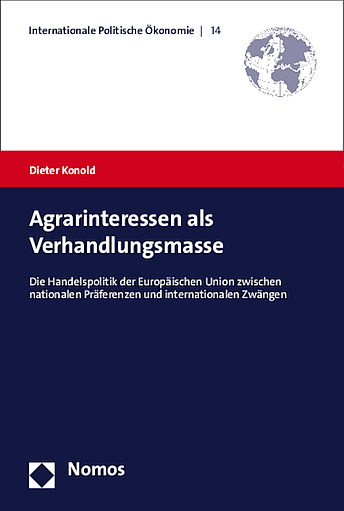englischEU trade policy is - or seems to be - contradictory. On the one hand, the Community champions a liberal world economic order, on the other hand, its agricultural sector is protected. Commonly, the special status of agriculture is ascribed to the power of the farm lobby. A detailed analysis of agricultural policy developments at the European level as well as in France and Germany, however, shows that the farmers’ associations do not have the influence resources (anymore) to dominate the policy field. This loss of influence was not accompanied by a corresponding liberalization of the agricultural sector as existing structures do not only serve agrarian interests. Institutional factors, budgetary considerations and societal demands have a positive effect on strengthening the status quo. In international trade talks, this set-up offers European negotiators the possibility of using agricultural interests as bargaining chips.
Die Handelspolitik der EU ist – oder scheint – widersprüchlich. Einerseits setzt sich die Gemeinschaft für eine liberale Weltwirtschaftsordnung ein, andererseits schützt sie ihren Agrarsektor. Gemeinhin wird der Sonderstatus der Landwirtschaft auf die Stärke der „Bauernlobby“ zurückgeführt. Eine eingehende Untersuchung der agrarpolitischen Entwicklungen auf europäischer Ebene sowie in Frankreich und Deutschland zeigt jedoch, dass die Bauernverbände nicht (mehr) über die Einflussressourcen verfügen, um das Politikfeld zu bestimmen. Dieser Einflussverlust ging nicht mit einer entsprechenden Liberalisierung des Agrarsektors einher, weil der Fortbestand etablierter Strukturen nicht nur landwirtschaftlichen Interessen dient. Institutionelle Faktoren, budgetäre Erwägungen und gesellschaftliche Forderungen wirken Status quo-fördernd. In internationalen Handelsgesprächen bietet diese Konstellation den europäischen Unterhändlern die Möglichkeit, Agrarinteressen verhandlungstaktisch einzusetzen.



